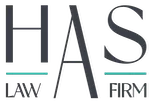- within Technology, Insolvency/Bankruptcy/Re-Structuring and Transport topic(s)
What are APIs?
Application programming interfaces (APIs) have become one of the most important features in the modern world, it is a very smart mechanism that allows software that has been designed by different programmers for different purposes to work together in very smooth harmony. It is simply allowing our favorite apps to let us create and log in with our accounts which already exist on Google, Facebook, and Instagram, in another language, the APIs can talk to other systems on the web and get the required information we need to be shown on our favorite apps such as weather applications, the app is using the APIs to get the weather information from different systems using the user credentials.
What APIs can do for us?
Another example of how the APIs work, is if we would like to do a governmental transaction such as requesting a new passport or, requesting a certificate for any reason from any governmental authority, in some countries the applicant has to go to the government building and apply for the services and submit the required documents along with the application for the service, the applicant should wait for the government's approval, the same thing if the service requires an application to be submitted online through the web, the applicant can submit the application for the specific service and upload the required documents, then waiting for a specific period to get the approval on the submitted application. This is exactly what the APIs do, it is the process that happens behind the doors of the offices. The APIs are software that allows negotiations to get the desired information from different websites and different databases.
APIs are trade secrets.
In some cases, APIs are considered to be a trade secret, and this can be found in case that there is a specific API has been made for an organization and cannot be used outside that organization in other meaning, it has been made specifically for this organization however, sometimes it would be so hard for the applications or the platform owner to decide that the used APIs in their apps are secret since there is a lot of APIs cannot be published but it could be " Reverse Engineering ", Reverse-engineering is the act of disassembly of an object to examine how it works. It is done primarily to the required knowledge about the mechanism of something, however, it is always used to duplicate or develop the object. Many things can be reverse-engineered, including software, physical machines, military technology, and even biological functions related to how genes work.
Sega Enterprise LTD v. Accolade, Inc1
At the beginning of the 90s, the video game Tycoon "SEGA" has filed a case against the video game publisher Accolade " claiming that the video game publisher company has done reverse engineering for the computer software of Sega Genesis and Published the videos games without taking any permission or obtaining any License to do publishing by the claimant " SEGA"., that case was filed on so many legal grounds such as the permitted usage of trademark and the copyright protection not to mention the doctrine of fair use for computer's code.
The Northern Court of Carolina has ruled a judgment in favor of the claimant by issuing an injunction against Accolade to stop publishing more computer software" games" for SEGA and obliging the defendant "Accolade "to reclaim any existent Genesis game they already sold.
However, the respondent had the chance to challenge the court of first instance judgment before the Ninth Circuit by filing an appeal, the respondent has a ground for its appeal that the process of reverse engineering which was done on the genesis was supposed to be protected by the fair use, and if the claimant is alleging that the respondent has violated their trademarks it should be their mistakes not the claimant because there was no TM sign appeared on the logo.
Eventually, on August 28, 1992, the ninth circuit "court of Appeal" has ruled judgment in favor of the respondent " Accolade" whereas, the court concluded that the copyright wasn't infringed and the reverse engineering process was protected under the fair use moreover, the of there is any trademark has been violated, it should be the claimant " SEGA" fault where there was no TM sign on the logo.
According to the above-mentioned case, there would be a lot of solutions for the owners of the APIs to protect it and one of these solutions is to license their software under a contract which should prohibit the process of reverse engineering however, this will not be guaranteed.
Another Perspective of the legal protection of the secrecy of the APIs is when the APIs are used completely and exclusively inside one organization where the reverse engineering process would be normally allowed as the developer who will reverse engineer the software would be under the duty of secrecy by default.
APIs and copyright
There are so many reasons that make The copyright the most effective legal way to protect the APIs (1) computer programs are already protected under the copyright, and APIs are already materialized with the computer programs. (2) since the API's nature is not eligible for trade secret or patent as it is fundamental information stored in a physical medium therefore it is most likely eligible to be protected by copyright. (3) again, the nature of the APIs as a creational work so far than technical or functionality since the developers of the APIs are writing the codes which is should be considered as "Original work of authorship `" which should be protected by the copyright.
therefore, the APIs cannot be found to be protected under trade secrets or as a pattern, the copyright protection will be the ideal legal protection for the APIs as creative works by the owner need to be protected however, copyright protection will also impact the doctrine of merger and the doctrine of fair use.
The doctrine of fair use 2
The doctrine of fair use is the main concept and belief that the public and everyone as individuals or organizations have the right to use and deal with part of the copyrighted materials without being in violation of the copyright law i.e., infringing the copyright protection of these items or material.
For example, the public has the right to comment on copyrighted material by submitting a comment through social media, quoting from a journal article, or discussing a book or a novel in a video on YouTube or in a tv show which requires to have some of the original parts of the work and quote some parts of the copyrighted materials without taking any permission from the owners of such materials.
Another example of the fair use of copyrighted material is the "Parody" which is usually an imitation of the original artwork in a sarcastic way to explain and criticize the work in a tv show or YouTube video. these copyrighted materials might be artistic works, movies, songs, or books, sometimes the owners of the copyrighted material might not be happy with the act of using some quotes from their copyright-protected materials or doing a parody of their artistic works, and they might file a lawsuit at the court to obtain compensation for the infringement of their protected copyrighted materials.
The court in this situation has to decide on the claim by applying some factors to the events of the case to determine whether it deserves to be heard as a copyright infringement case or otherwise, the doctrine of fair use will be applied, the most common factor or test the court usually examines is to check whether the act of the defendant " the public user" has affected negatively on the owner in another meaning, the court has to decide whether the infringement act has deprived the owner of any of its right as the owner's monetary benefits or profits.
APIs deserve to be legally protected.
The Applications Programming Interfaces (APIs) should be treated like any other creative work, and it also has a substantial expression value, that value might arise out of the API's unique design or, might arise from the number of features that it might has as well as the time and research and resources which has been consumed to design and create the APIs, this value of the APIs is not fixed since it can be increased based on after creation activities for example if the creator of the APIs released a manual for the APIs as an easy and intensive documentation for how to use the APIs, the protection that the copyright law provides to the APIs is significant and it allows the owner to feel safe on their work of creation, not to mention it provides protections to the right of the public as well to use and add their talent which is actually in favor of the public good. And it has become clear that the recent case between Google and Oracle has affirmed and illustrated the concept of " fair use" and its four factors as a test the court should do to distinguish between fair use and unfair use or copyright infringement, APIs as a creative work that consumed the time and the mental efforts for the human being to do it or write it as codes are deserved to be legally protected by the law.3
Footnotes
1. Sega v. Accolade, Inc, 977 F.2D 1510(9th.1992)
2. Rich Stem, the fair use, 2022, https://fairuse.stanford.edu/overview
3. Parth Sagdeo, " Harvard Journal of Law and Technology Volume 32, Number 1, (2018) 248
The content of this article is intended to provide a general guide to the subject matter. Specialist advice should be sought about your specific circumstances.


